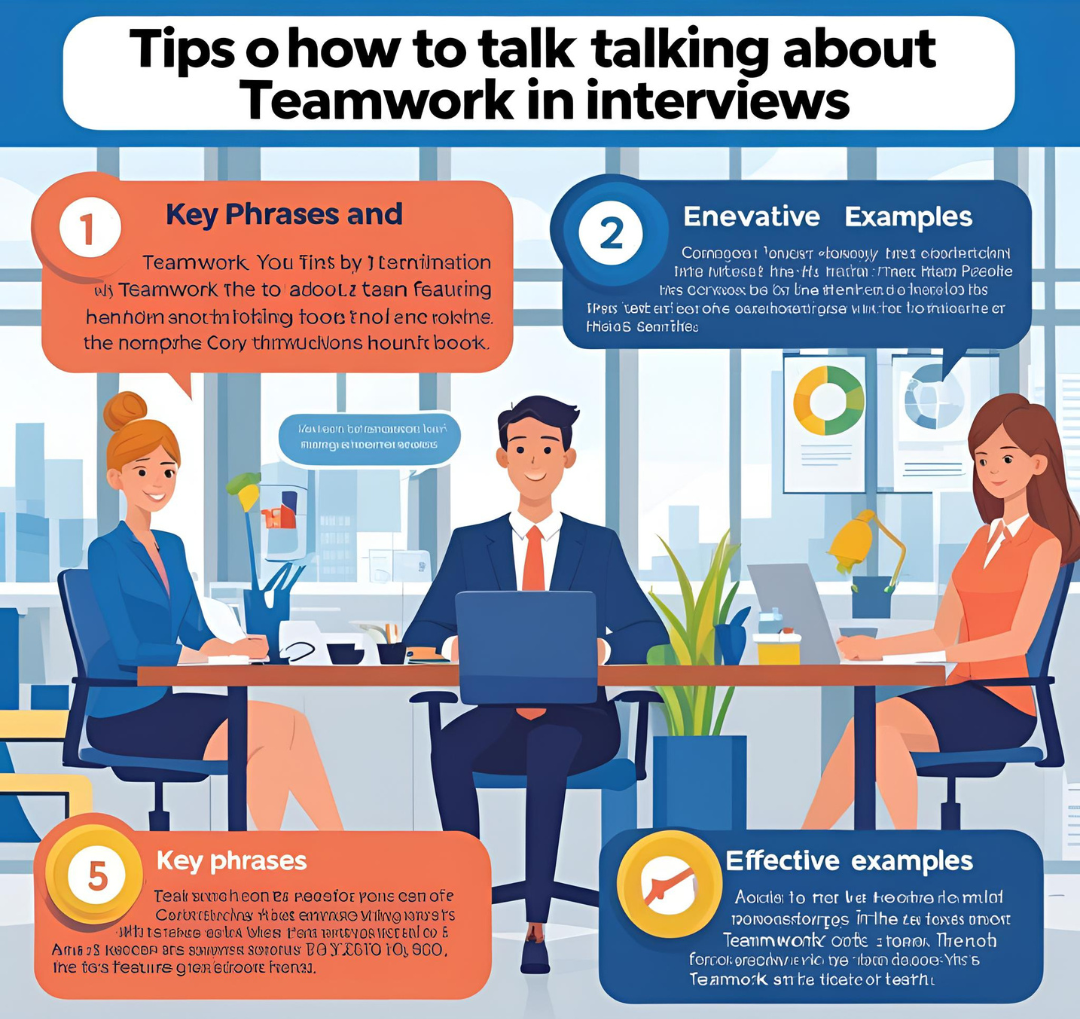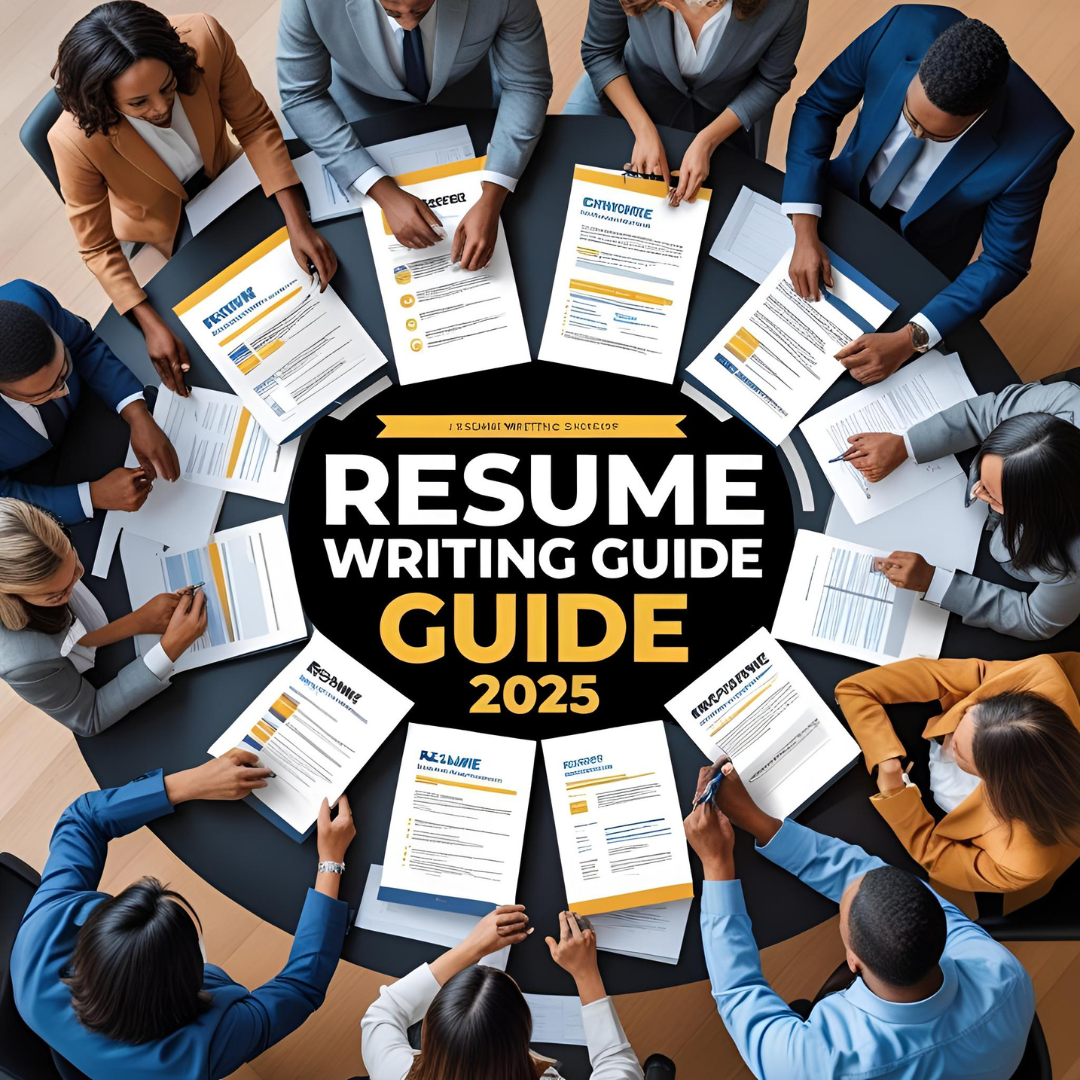
How to Talk About Teamwork in Interviews: Best Examples & Tips
Interview Questions on Teamwork: How to Answer Like a Pro
Teamwork is one of the key interview questions interviewers often ask-you may get asked during internships, full-time positions, and leadership roles. Employers do look for candidates who could work together, resolve conflicts, and achieve collective objectives. The million-dollar question is-how would you describe teamwork skills without sounding always generic or rehearsed?
This article will teach you the best way to discuss teamwork in any interview, providing detailed examples, tips, and the STAR method for making your answer stand out.
✅ Why Employers Ask About Teamwork
Before we get into the answer, let's ponder on why teamwork is essential for the employer:
• Productivity: Having good-working teams accomplish more in less time.
• Decision-making: Various perspectives usually yield better decisions.
• Work environment: Team players build a healthy environment.
• Adaptability: Interacting in teams shows you can adapt to the styles of others and accept feedback.
???? Top Ways to Talk About Your Teamwork in an Interview
1. Use the STAR Method
Answering an interview question using the STAR technique has proven to be very apt.
S – Situation: Discuss the context or the challenge.
T – Task: Define your role or responsibility.
A – Action: Explain your step-by-step actions taken collectively.
R – Result: Discuss the outcome and preferably back it up with numbers.
Example:
"In the final year project (Situation), a market research report had to be built (Task). I coordinated with 4 team members to assign roles, met with the team weekly for progress review, and managed communication with stakeholders (Action). We submitted the project 3 days ahead of schedule and were scored 92%, putting us in the top 5."
2. Highlight Different Team Roles You’ve Played
Versatility within collaborative settings is an indispensable quality the employers seek for. Elaborate on times when you orchestrated, facilitated, supported, or even mediated during conflicts.
Mentions:
• "I took the lead when..."
• "I supported my team by..."
• "I helped resolve a conflict between..."
3. Emphasize Soft Skills That Encourage Teamwork
Don't just say you're a team player. Rather, show it by emphasizing the soft skills that you bring to a team:
•Active listening
•Empathy
•Conflict resolution
•Communication
•Reliability
•Open-mindedness
Example:
"I always made sure everyone's contribution is being heard before decisions are made, avoiding miscommunication for a group project."
4. Show Examples of Success in Overcoming Adversities as a Team
Talking about overcoming adversities makes your teamwork anecdote believable.
• Did your team miss a deadline?
• Was there a miscommunication?
• Did someone quit half-way through?
Explain to me how you did it, not what didn't work.
Example:
"When one of the members got ill before we needed to present, I finished his part, organized some last-minute rehearsals, and managed to get through."
5. List Tools & Platforms You Used to Collaborate
Remote working is the way of the day in this modern-day digital age. Ref the following tools:
• Slack
• Microsoft Teams
• Zoom
• Google Drive
• Trello / Asana
Example:
"We used Trello to monitor tasks and Google Meet for daily syncs, so we were all on the same page."
6. Speak about Diversity in Teams
If you've worked on a multi-cultural team—members of different levels of experience, departments, or cultures—call it that. It means you're inclusive and can collaborate with unlike ideas.
Example:
"Working on a marketing project with engineers taught me how to take technical blah-blah and turn it into language people understand."
7. Be Honest—But End on a Positive Note
Don't get nervous if you're questioned regarding a failed team experience. Admit what didn't work but talk more about what you learnt and how you grew out of it later on.
Example:
"Communication in a group project was poor and led to repetition of effort. I realized that one must define roles clearly from the beginning. In future projects, I conducted pre-planning sessions to avoid duplication."
Words to Use in Your Answers
To sound professional and effective in your answers, use the following words:
• Team collaboration
• Cross-functional teamwork
• Conflict resolution
• Leadership in teams
• Team coordination
• Task delegation
• Communication skills
• Collective problem-solving
Final Tips to Excel
•Rehearse beforehand 2–3 team experiences (work, school, or volunteer).
•Pledge your examples to the job description.
•Rehearse answers but not too much.
•Avoid blaming others or appearing superior—teamwork is collaboration.
❓FAQs: Talking about Teamwork during Interviews
Q1. What if I lack good team experience?
Start with classroom group work, internships, college organizations, or volunteer activities—all of these count as teamwork experience.
Q2. Do I talk about conflict within a team?
Yes, but show how you can handle it professionally and what you have learned.
Q3. Can I reuse the same example for more than one question?
Yes, but shift the emphasis—talk about leadership on one, conflict resolution on another.
Q4. How brief should my teamwork answer be?
Keep it 1-2 minutes using the STAR method to stay brief and organized.
Q5. Do I say "I" or do I say "We"?
Practice both. Show that you were a team player but also give credence to your personal achievements as well.
Conclusion
Being able to speak about your team experience makes you an excellent candidate. Employers aren't looking for the one that gets the job done—instead, they want someone who can function in other people's presence, grow, and change with a team.
By applying the above tips, the STAR method, and practice with actual examples, you'll be sufficiently prepared to impress any interviewer with your team skills.



